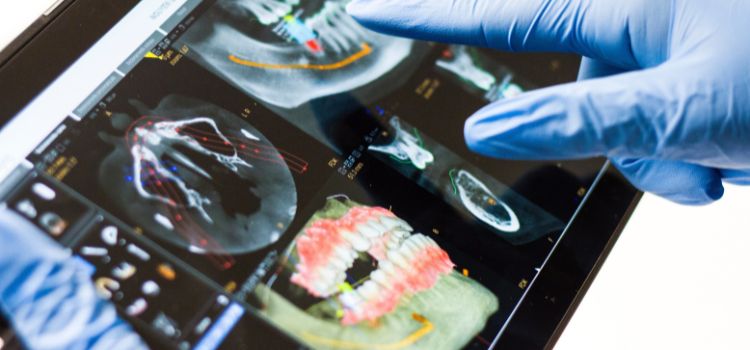As an Amazon Associate I earn from qualifying purchases.
Certainly, you can drink coffee after a filling without any issues. Coffee consumption does not negatively impact dental fillings.

Coffee lovers may be concerned about enjoying their favorite beverage after having a filling. However, there is no need to worry, as drinking coffee after a filling is perfectly fine. Dental fillings are made of strong materials like amalgam or composite resin that can withstand the temperatures of hot beverages like coffee.
These materials are designed to be durable and can handle the daily wear and tear of eating and drinking. So go ahead and savor your cup of coffee after getting a filling without any hesitation.
Understanding Dental Fillings
When it comes to dental health, understanding dental fillings is essential. If you’ve had a dental cavity or tooth decay, your dentist may recommend a dental filling to restore your tooth to its normal function and appearance. This blog post will delve into the different types of dental fillings and answer the common question: Can you drink coffee after a filling? So, let’s get started!
What Are Dental Fillings?
Dental fillings are materials used to repair teeth that have been damaged by decay or cavities. They are designed to restore the strength and structure of your tooth while preventing further decay. Fillings are a common dental procedure and are typically done after the removal of decayed tooth material by drilling.
Types Of Dental Fillings
When it comes to choosing a dental filling material, there are several options available. The type of filling that will be most suitable for you will depend on various factors such as the extent of tooth damage, your budget, and your dentist’s recommendation. Here are the most commonly used types of dental fillings:
| Type of Filling | Description |
| Amalgam fillings | These fillings are made from a mixture of metals, including silver, mercury, tin, and copper. They are known for their durability and longevity, making them a popular choice for back teeth that undergo heavy chewing forces. |
| Composite fillings | Composite fillings consist of a blend of plastic and finely ground glass particles. They are tooth-colored and can be closely matched to the natural shade of your teeth, making them a popular choice for visible teeth. |
| Ceramic fillings | Also known as porcelain fillings, ceramic fillings are made from a tooth-colored material that is highly biocompatible. They offer excellent aesthetics and are usually used for larger cavities or in patients who may have metal allergies. |
| Gold fillings | Gold fillings are made from a mixture of gold, copper, and other metals. They exhibit remarkable durability and have the potential to endure for an extended period. However, they are quite expensive and are not as aesthetic as other filling options. |
| Glass ionomer fillings | These fillings are made of a material that contains fluoride and glass powder. They are often used for small fillings in areas of low chewing pressure, such as baby teeth or roots. |
Each type of dental filling has its own advantages and disadvantages. Your dentist will recommend the most suitable option for your specific case, taking into consideration factors such as the location of the cavity, the size of the filling, and your oral health history.
Now that we have a better understanding of dental fillings, let’s move on to the burning question: Can you drink coffee after a filling? Continue reading to find out!
Effects Of Coffee On Dental Fillings
The effects of coffee on dental fillings are a common concern for many coffee lovers. While enjoying that cup of joe is a delightful and essential part of many people’s daily routine, it’s important to understand how it may impact dental fillings. In this article, we’ll explore two significant effects of coffee on dental fillings: tooth sensitivity and staining potential.
Coffee And Tooth Sensitivity
Tooth sensitivity is an uncomfortable condition that can be exacerbated by the consumption of hot or cold beverages, including coffee. When you have dental fillings, the sensitivity may increase due to the involvement of nerve endings in the filled tooth. The temperature of coffee can trigger sensitivity, causing brief, sharp pain. If you experience tooth sensitivity after drinking coffee, it’s advisable to consult your dentist for guidance and possible solutions. They may recommend desensitizing toothpaste or specific treatments to alleviate the sensitivity.
Staining Potential Of Coffee On Fillings
One of the primary concerns when it comes to drinking coffee after a filling is the potential for staining. Coffee contains pigments called tannins, which can adhere to tooth surfaces and cause discoloration over time. While porcelain or composite resin fillings are less prone to staining compared to natural tooth enamel, they are not entirely immune.
Composite resin fillings are typically more susceptible to staining than porcelain fillings due to their composition. They consist of a mixture of plastic and other materials that can absorb pigments from coffee, leading to a change in color. However, the extent of staining may vary depending on the specific materials used in the filling. Porcelain fillings, on the other hand, are generally more resistant to staining, making them a preferable option for those concerned about discoloration.
If you have composite resin fillings and are worried about staining, here are a few tips to minimize the potential impact:
- Drink coffee through a straw to reduce direct contact with the teeth.
- Consider using toothpaste specifically designed to combat staining.
- Adhere to proper oral hygiene routines, such as consistently brushing and flossing.
- Visit your dentist for professional cleanings to help remove surface stains.
It’s worth noting that despite these precautions, some degree of staining over time is unavoidable. However, proper care and maintenance can help minimize the visible effects.
Caring For Dental Fillings

After getting a dental filling, it’s important to take proper care of your oral health to ensure the longevity of the filling and maintain overall dental hygiene. By following a few simple practices and making conscious food and drink choices, you’ll be on the right track to caring for your dental fillings.
Oral Hygiene Practices
Good oral hygiene plays a crucial role in preventing any further dental issues and maintaining your dental fillings. Here are some recommended oral hygiene practices:
- Brush Your Teeth Regularly: Brush your teeth at least twice a day using a soft-bristled toothbrush and a fluoride toothpaste. Ensure that you brush gently around the filled area.
- Floss Daily: Flossing helps remove plaque and food particles from between your teeth, including around the fillings. Clean the spaces between your teeth carefully to avoid damaging the filling.
- Use Mouthwash: Incorporating an antimicrobial mouthwash into your daily routine will help kill bacteria in your mouth and keep your gums healthy.
- Practice Gentle Techniques: Avoid using excessive force or aggressive brushing techniques as these can damage the filling material or cause it to loosen.
Avoiding Certain Foods And Drinks
While dental fillings are durable, it’s still wise to be cautious about the foods and drinks you consume to prevent potential damage. Here are some foods and drinks to avoid:
- Hard and Crunchy Foods: Chewing on hard candies, ice, or nuts can put unnecessary pressure on the filled tooth, leading to a cracked or dislodged filling.
- Chewy and Sticky Foods: Sticky caramel, taffy, or chewing gum have the potential to dislodge or damage the filling material.
- Acidic Beverages: Highly acidic drinks like citrus juices and carbonated sodas can erode the tooth enamel surrounding the filling, weakening its integrity.
- Hot and Cold Sensitivities: If your filling was recently placed, you may experience temporary sensitivity to extreme temperatures. Avoid excessively hot or cold foods and beverages until the sensitivity subsides.
Regular Dental Check-ups And Cleanings
Regular dental check-ups and professional cleanings are vital for the maintenance of your dental fillings. Here’s why these appointments are crucial:
- Early Detection: Regular exams allow your dentist to identify any potential issues with your fillings, such as cracks or wear, before they become major problems.
- Professional Cleaning: Dental cleanings remove plaque and tartar buildup, helping to prevent decay and gum disease that could compromise the integrity of the filling.
- Expert Advice: Your dentist can provide personalized guidance on how to care for your specific filling material and address any concerns or questions you may have.
By diligently following these practices and avoiding potential risks, you can ensure the longevity of your dental fillings and maintain a healthy smile. Always consult with your dentist for personalized advice regarding your fillings and dental care routine.
Frequently Asked Questions For Can You Drink Coffee After A Filling
How Long After Filling Can You Drink Coffee?
You can drink coffee immediately after filling.
What Can I Not Drink After A Filling?
Avoid drinking hot or cold beverages, fizzy drinks, alcohol, and straws after a filling to prevent sensitivity and damage.
How Soon Can You Drink After A Filling?
You can typically drink right after a filling. However, it’s best to wait until the numbness wears off to prevent accidental biting or burning yourself. Also, avoid drinking hot beverages or alcohol for the first 24 hours to allow the filling to set properly.
What Is Not Allowed After Tooth Filling?
After tooth filling, avoid eating or drinking anything for at least 2 hours. Avoid hot or cold foods, hard or sticky candies, and crunchy or chewy foods. Also, refrain from smoking or using tobacco products as they may hinder the healing process.
Take care of your oral hygiene by gentle brushing and regular flossing.
Conclusion
Drinking coffee after a filling is generally safe, but it’s important to be cautious. While caffeine may temporarily numb the pain, it’s best to wait until the anesthesia wears off completely. Remember to drink coffee in moderation to prevent staining or damaging your dental work. Prioritize your oral health and consult your dentist for personalized advice.
As an Amazon Associate, I earn from qualifying purchases.
Leave a Reply